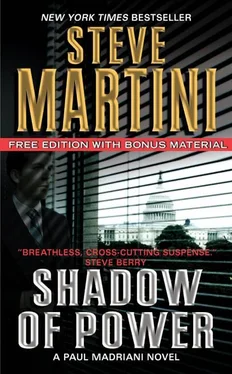Steve Martini - Shadow of Power
Здесь есть возможность читать онлайн «Steve Martini - Shadow of Power» весь текст электронной книги совершенно бесплатно (целиком полную версию без сокращений). В некоторых случаях можно слушать аудио, скачать через торрент в формате fb2 и присутствует краткое содержание. Жанр: Триллер, на английском языке. Описание произведения, (предисловие) а так же отзывы посетителей доступны на портале библиотеки ЛибКат.
- Название:Shadow of Power
- Автор:
- Жанр:
- Год:неизвестен
- ISBN:нет данных
- Рейтинг книги:5 / 5. Голосов: 1
-
Избранное:Добавить в избранное
- Отзывы:
-
Ваша оценка:
Shadow of Power: краткое содержание, описание и аннотация
Предлагаем к чтению аннотацию, описание, краткое содержание или предисловие (зависит от того, что написал сам автор книги «Shadow of Power»). Если вы не нашли необходимую информацию о книге — напишите в комментариях, мы постараемся отыскать её.
Terry Scarborough is a legal scholar and provocateur who craves headline-making celebrity, but with his latest book he may have gone too far. In it he resurrects forgotten language in the U.S. Constitution – and hints at a missing letter of Thomas Jefferson's – that threatens to divide the nation.
Then, during a publicity tour, Scarborough is brutally murdered in a San Diego hotel room, and a young man with dark connections is charged. What looks like an open-and-shut case to most people doesn't to defense attorney Paul Madriani. He believes that there is much more to the case and that the defendant is a pawn caught in the middle, being scapegoated by circumstance.
As the trial spirals toward its conclusion, Madriani and his partner, Harry Hinds, race to find the missing Jefferson letter – and the secrets it holds about slavery and scandal at the time of our nation's founding and the very reason Scarborough was killed. Madriani's chase takes him from the tension-filled courtroom in California to the trail of a high court justice now suddenly in hiding and lays bare the soaring political stakes for a seat on the highest court, in a country divided, and under the shadow of power.














